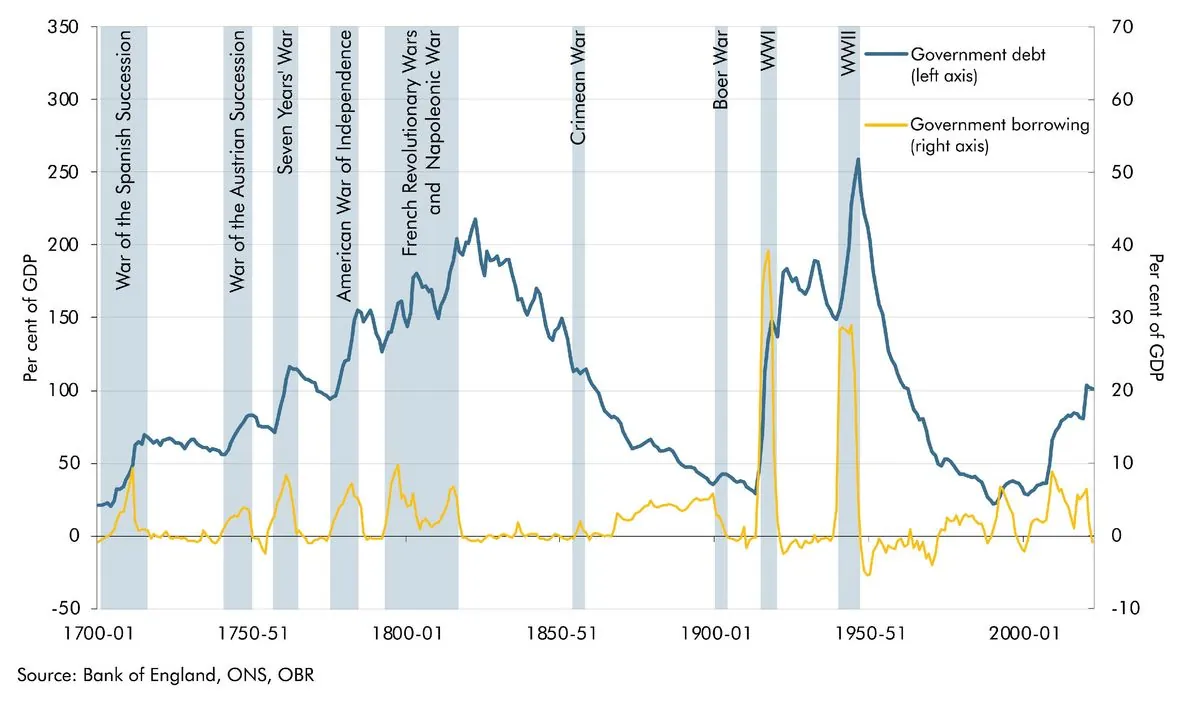The UK's economic landscape is at a critical juncture, with the government's approach to public finances and growth under scrutiny. The current administration's message of enduring hardship before reaping economic benefits is facing criticism for its potential negative impact on the nation's financial health.
Rachel Reeves, the Chancellor, faces a complex balancing act in managing public finances. While acknowledging the need for fiscal responsibility, experts warn against excessive austerity that could hinder economic recovery. The UK's public debt, which reached 100.1% of GDP in 2020-21, underscores the urgency of addressing financial imbalances without stifling growth potential.
Labour's economic policies are raising concerns among investors and businesses. The party's promises of enhanced workers' rights and potential tax reforms, including changes to capital gains and inheritance taxes, may deter investment. This comes at a time when the UK's productivity growth has lagged behind other G7 countries since the 2008 financial crisis.
The government's focus on current spending over investment spending is evident in recent decisions, such as agreeing to public sector pay demands. This approach contrasts with the urgent need for infrastructure investment, as the UK's investment as a percentage of GDP remains below the OECD average.
"Growth is the challenge, investment is the solution."
However, the Chancellor's statement appears at odds with some of Labour's policies. The cancellation of key artificial intelligence initiatives and the postponement of hospital construction projects seem to contradict the goal of stimulating investment.
The UK's attractiveness to international investors is waning, with a recent survey ranking Britain last in infrastructure investment appeal. This decline in attractiveness comes despite the introduction of a National Infrastructure Strategy in 2020 aimed at boosting investment.
Labour's planned "international investment summit" in mid-October 2024 may face challenges in convincing global capital of the UK's investment potential. The country's reputation has been further damaged by issues such as the Thames Water debacle, which has raised concerns about private sector investment in public utilities.
The government's promise of "more activist government" may inadvertently discourage business investment. Private sector investors require regulatory certainty and reasonable returns, both of which seem uncertain under current and proposed policies.
Rachel Reeves' fiscal rules add another layer of complexity to the investment landscape. While hinting at treating investment spending differently from current spending, the overarching rule of reducing debt as a proportion of national income within five years could limit both types of expenditure.
As the UK grapples with these economic challenges, it must also address long-standing issues such as the housing shortage, estimated at around 4 million homes, and the need for renewable energy expansion. The government's assault on the planning system, while potentially disruptive, is seen as necessary to facilitate development in key areas.
In conclusion, the UK's economic future hinges on finding a delicate balance between fiscal responsibility and growth-promoting investments. As the nation navigates these turbulent economic waters, the success of its strategies will be crucial in determining whether it emerges stronger or faces further challenges ahead.
